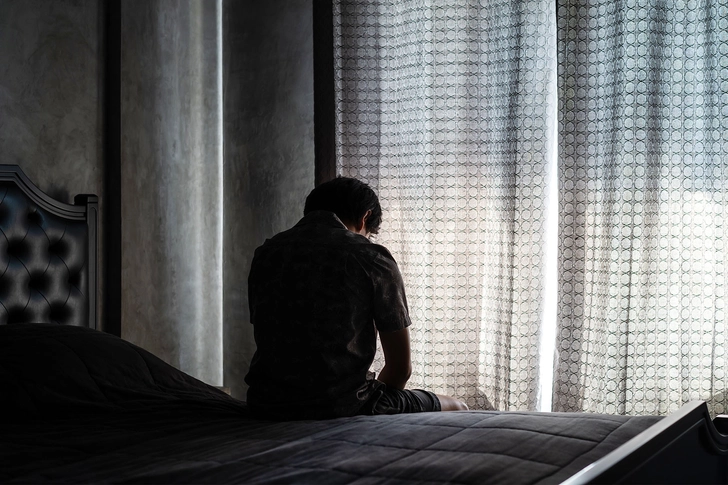Managing the Emotional Effects of Lupus



How Lupus Affects Your Emotions
Living with a long-term illness can affect more than your physical health. It may also negatively impact your emotional well-being. Research shows people with lupus tend to have more coexisting health conditions than those without the illness. This can include things like depression and anxiety. And the medicine you take for lupus may also cause side effects that affect your mood and emotions.

Lupus Medicine
The medicine you take to treat lupus can trigger changes to your mental health and emotions. Steroids can cause:
- Depression
- Over-the-top energy, mood, or behavior (mania)
- A disconnection from reality (psychosis)
- Confusion
- A heightened sense of happiness (euphoria)
Experts say high doses of steroids may cause these symptoms.

Depression
Depression is a response to how lupus affects your body and mind. One study looked at nearly 600 people diagnosed with lupus. Doctors diagnosed 30% with depression in the same year of their lupus diagnosis.
Overall, experts think between 15% to 60% of people living with an ongoing illness like lupus will have depression. Symptoms include:
- Hopelessness
- Helplessness
- Sadness
- Crying
- Trouble sleeping
- Appetite changes
- Irritability

Anxiety
Lupus flares often come and go without warning. This uncertainty can take a toll on your mental health, causing anxiety.
Research shows around 50% of people with lupus have an anxiety disorder. Many times, depression and anxiety happen together. You can spot anxiety with these symptoms:
- Sweaty hands
- Trouble catching your breath
- Problems with digestion
- Confusion
- Memory and concentration issues
- A fast or fluttering heartbeat

Dealing With Depression and Anxiety
There are steps you can take to ease depression and anxiety stemming from lupus:
- Medication. An antidepressant or anti-anxiety drug prescribed by your doctor could help you feel better within weeks.
- Therapy. A mental health professional can help you put your feelings about lupus into perspective and offer coping strategies.
If you’re having an immediate mental health crisis, call 911 right away.

Self-Compassion
Remember to be kind to yourself. Treat yourself the same way you would a loved one -- with care and support. Compassion for yourself can ease stress and protect against it in the future. It’ll also help you to adjust to the challenges of living with lupus.
Self-compassion starts with how you talk to yourself. Acknowledge how lupus affects you. Replace negative self-talk with positive language and the things you’re grateful for.

Learn Your Triggers
It’s hard to predict when a lupus flare will happen. But knowing and managing your triggers are key to improving your mental health. Here are some things that may set off a flare:
- Stress
- Working too hard with not enough rest
- Sun exposure
- Fluorescent and halogen lights
- Infection
- Injury
- Not taking your lupus medicine
- Medicine for other illnesses
Keep in mind that even with lupus medicine, these triggers can still cause a flare.

Watch for Lupus Warning Signs
Along with learning your triggers, pay attention to physical changes that could warn of an oncoming flare. They include:
- Tiredness
- Painful, stiff, swollen joints
- Rash on your face or other parts of your body
- Fever
- Stomachache
- Trouble catching your breath
- Pain in your chest
- Dry eyes
- Headache
- Confusion
- Memory loss
If you feel a lupus flare coming on, tell your doctor. They may adjust your medicine to help ease your symptoms.

Coping Strategies
Here are some everyday tips for balancing your emotions and better overall health:
- Sleep. A lack of quality sleep is linked to depression symptoms. Aim for 8 hours of sleep a night.
- Exercise. Get in some activity every day. If the gym isn’t for you, try walking or gardening.
- Pain relief. Ongoing pain can lead to depression. Beyond medicine, pain relief can include things like yoga, tai chi, Pilates, acupuncture, and meditation.

Family and Friend Support
As you navigate the emotional challenges of lupus, friends and family are a great source of comfort. Be as transparent as possible about what you’re feeling and how they can help. Create a circle of people you can lean on for emotional support. Other ideas include joining an in-person or online support group for people with lupus.
IMAGES PROVIDED BY:
- Jasmin Meridan / Getty Images
- Daryl Solomon / Getty Images
- Kittiphan Teerawattanakul / EyeEm / Getty Images
- Catherine McQueen / Getty Images
- SDI Productions / Getty images
- Westend61 / Getty Images
- Manuel Breva Colmeiro / Getty images
- Dr P. Marazzi / Science Source
- adamkaz / Getty images
- SDI Productions / Getty Images
SOURCES:
Lupus UK: “Psychological and Psychiatric Problems in Lupus.”
Lupus Foundation of America: “Lupus and depression: Know the signs and how to get help,” “Study Sheds Light on the Physical, Emotional and Economic Burden of Lupus.”
HSS: “Lupus and Your Emotions.”
OASH Office on Women’s Health: “Living with lupus.”
Mayo Clinic: “Lupus.”